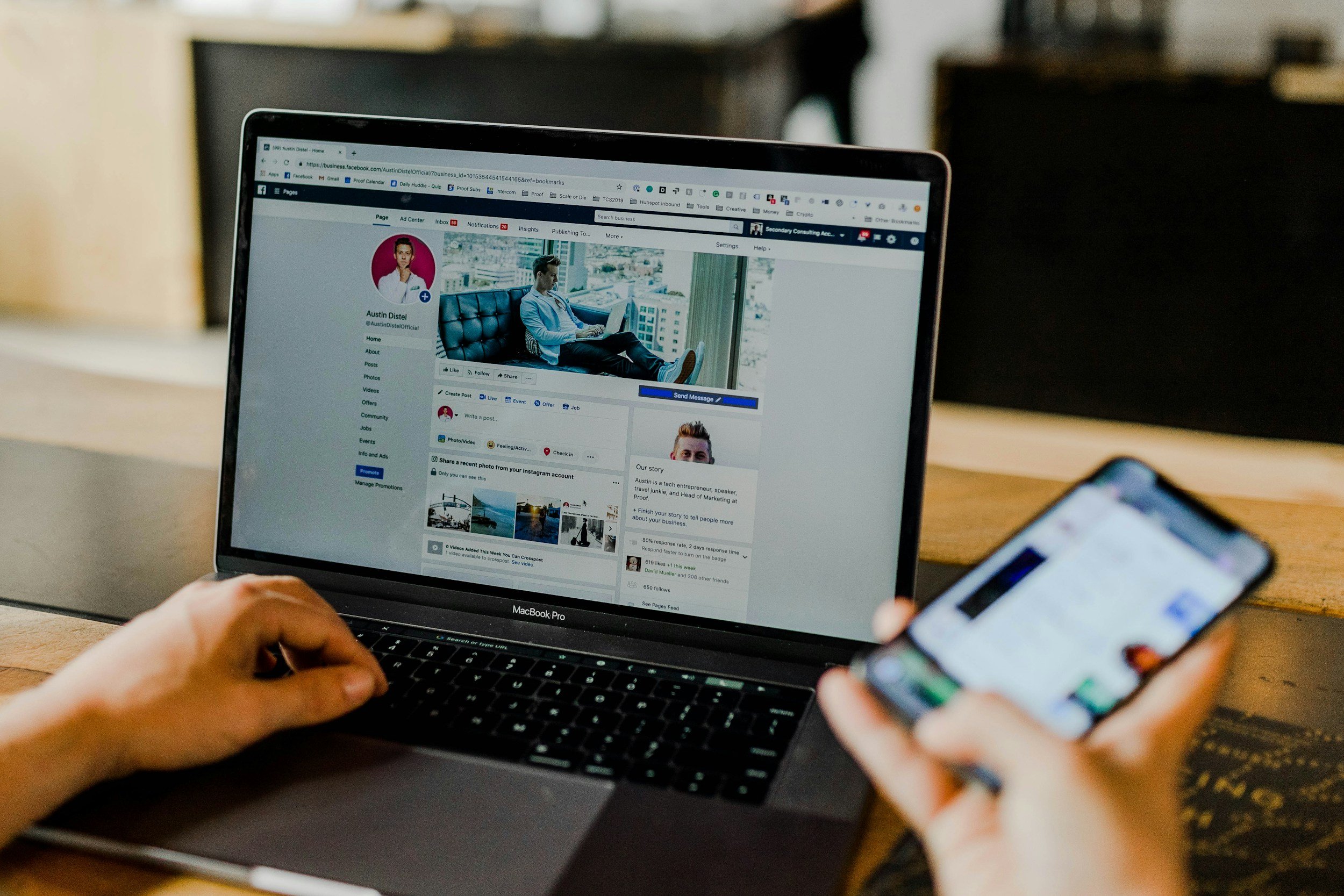Social Media and Anxiety: How to Protect Your Mental Health Online
By Andrea Gonzalez
Published on 3/28/25
Social media has transformed the way we connect, communicate, and consume information on the daily. Apps such as Instagram, TikTok, X, and Snapchat are part of everyday life, especially for adolescents and young adults. But as this usage of such apps increases, the concern about the effects and impact on mental health continue to develop—specifically anxiety.
Multiple studies link frequent social media use to heightened anxiety, lower self-esteem, and feelings of isolation. Understanding this connection and learning how to protect your well-being online can make a real difference for many.
The Link Between Social Media and Anxiety
A 2021 review published in the International Journal of Environmental Research and Public Health found a strong association between problematic social media use and anxiety, especially in young people. It's not just about how long we spend online but also what we are consuming daily and how we’re engaging with these stimulators (Marengo et al., 2021).
How Social Media Triggers Anxiety
1. Social Comparison
Social platforms often highlight curated moments of other people’s lives, the good moments such as vacations, milestones, perfectly posed photos that are, most of the time, highly edited to make them “perfect”. This creates pressure to “keep up” and can fuel feelings of insufficiency. According to McLean Hospital, these comparisons can significantly harm one’s self-esteem and increase anxiety levels (McLean Hospital, 2023).
2. Cyberbullying and Online Negativity
Because there is such anonymity in social media, this can encourage hurtful behavior like cyberbullying, trolling, and passive-aggressive comments, which are, sadly, extremely common.. The U.S. Surgeon General warns that online harassment is a major contributor to poor youth mental health, often linked with anxiety, depression, and suicidal thoughts (HHS, 2023).
3. Fear of Missing Out (FOMO)
Seeing friends and influencers enjoying experiences you’re not part of can lead to FOMO, something we are all familiar with, and this is a major anxiety trigger. This emotional response can cause stress, sleep issues, and a constant need to check your phone (McLean Hospital, 2023).
4. Addictive Design and Overstimulation
Apps use features like infinite scrolling, or “doom scrolling”, and notifications to keep users engaged. These design choices activate the brain’s dopamine reward system, which makes it harder to let go of these videos, apps, etc., and easier to become overstimulated, leading to anxiety and mental fatigue (UC Davis Health, 2024).
How to Protect Your Mental Health on Social Media
You don’t have to quit social media entirely, just change how you use it. Here are some different expert-backed strategies that you can rely on:
1. Set Screen Time Limits
Too much screen time is linked to poor sleep and mental health challenges. Using tools like Apple Screen Time or Digital Wellbeing on Android to set boundaries and track usage. This can be frustrating at first and you might want to extend the time limit, but just don’t– practice that self-regulating ability, it’ll be better for you!
2. Create a Positive Feed
Follow accounts that make you feel inspired, informed, or just good overall. Don’t hesitate to unfollow people or pages that spark anxiety, comparison, or stress. Again, this might be somewhat hard, or you might think it simply does not work, but just give it a try! It is like cleansing your space.
3. Take Digital Detoxes/Breaks
Short breaks from social media, maybe a weekend off or no-phone evenings—can reduce stress and help reset your brain. Even a 24-hour detox can boost mood and focus (NY Post, 2025).
4. Reconnect Offline
In-person connections are vital for emotional health. Spend time with loved ones, go outside, or engage in hobbies that don’t involve screens! This can be really fun, planning out activities and coming up with other ideas!
5. Practice Mindfulness
Journaling, meditation, and breathing exercises can help you process your emotions and create space from digital triggers. You might hear this often, but these things really work, and if you need a guide, apps like Calm and Headspace offer guided sessions designed for digital stress relief. You can also download a journaling app or just use your phone notes!
Lastly…
Social media isn't just harmful—but you need to understand and learn how to use it, this is what makes all the difference. With awareness, boundaries, and intention, you can enjoy the benefits of being connected while protecting your mental health.
If social media is contributing to your anxiety or affecting your daily life, don’t hesitate to talk to a mental health professional– we offer great services here at Baypoint Counseling Center! You deserve to feel safe and balanced.
References:
Marengo, D. et al. (2021) – Problematic Social Media Use and Mental Health
https://www.ncbi.nlm.nih.gov/pmc/articles/PMC7785056/McLean Hospital (2023) – Is Social Media Affecting Your Mental Health?
https://www.mcleanhospital.org/essential/it-or-not-social-medias-affecting-your-mental-healthU.S. Department of Health and Human Services (2023) – Surgeon General’s Advisory on Social Media and Youth Mental Health
https://www.hhs.gov/sites/default/files/sg-youth-mental-health-social-media-advisory.pdfUC Davis Health (2024) – Social Media’s Impact on Mental Health and Tips to Use It Safely
https://health.ucdavis.edu/blog/cultivating-health/social-medias-impact-our-mental-health-and-tips-to-use-it-safely/2024/05New York Post (2025) – Four Tips for a Healthy Social Media Experience
https://nypost.com/2025/03/15/health/four-tips-for-a-healthy-social-media-experience/

